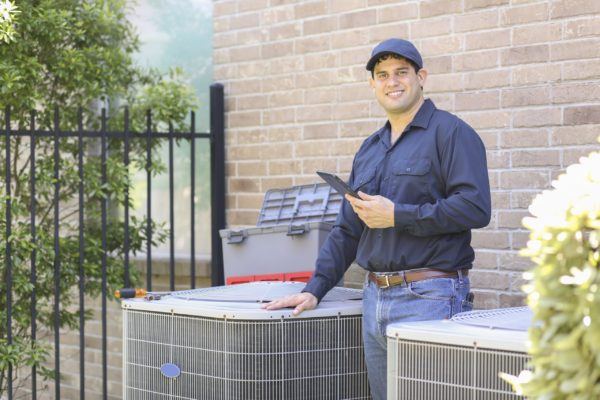
A compressor is the heart of your air conditioning unit. It is an expensive component in the cooling cycle. The role of this device is to circulate refrigerant through your air conditioning unit. Failure to service your air conditioner can lead to increased wear and tear.
Debris, dust particles, or refrigerant leaks significantly impact the performance of your cooling unit’s compressor. You have an AC emergency when an AC compressor breaks down or stops working. You cannot fix it in some scenarios, and AC replacement is the only possibility. Here are the common AC issues associated with air conditioner compressors and how to prevent them.
1. Improperly Sized Suction Lines
An improperly sized suction line can cause compressor failure. Too short or long suction lines can build pressure and even overheat the device. If you want to install or repair a suction line, you need to find an AC professional.
These experts know the type of suction lines suitable for different AC units. They will install the correct length of suction lines.
2. Damaged or Blocked Suction Lines
With time, your cooling system’s lines can develop holes and cracks. These openings may hinder refrigerant flow and put more pressure on your unit. One of the major indications of this problem is the decline in your system’s cooling ability.
Reduced cooling forces your air conditioner to run for longer, increasing its power consumption and wear and tear. It also reduces how well your AC performs. If your air conditioner is not achieving your desired temperature, you should call your AC expert to inspect your unit.
3. Overheating
One of the common causes of compressor failure is overheating. For instance, your AC compressor will overheat if you expose your outdoor unit to direct sunlight. If there isn’t good ventilation, your compressor will overheat.
High power voltage can also damage the unit’s motor, causing your air conditioner’s compressor to overheat. Low refrigerant levels, lack of insulation, and dirty coils can cause the compressor to overheat, leading to failure.
4. Electrical Problems
Electrical problems can cause major damage to your air conditioner’s compressor and other parts of the system. Damaged fuses and wires can cause electrical failure.
When electrical errors occur, harmful acids can build up in the AC unit. This will cause other parts of the system to malfunction, too. Power surges may also lead to electrical problems within your air conditioning unit.
One of the most common signs of electrical problems in air conditioners is oxidation and acid buildup. Scheduling routine AC tune-ups can help prevent electrical issues. An experienced HVAC technician can inspect your AC for acid buildup. They can repair damaged wiring, fuses, and other components before they destroy your compressor.
5. Low Refrigerant Levels
Your air conditioning unit cannot cool your living space without the right amount of refrigerant. Air conditioners normally do not use refrigerant during operation. If the level of refrigerant in your AC is low, you need to contact your technician to check your unit.
Sometimes your unit’s refrigerant lines may develop holes or get cracked. As a result, the refrigerant flowing via the lines may leak, decreasing your unit’s refrigerant charge.
Loss of efficiency and a harder working AC are both symptoms of low refrigerant. Low refrigerant levels normally decrease pressure in the unit. This forces the compressor to work hard to push refrigerant into your AC system.
6. Too Much Refrigerant
Like improperly sized suction lines, the wrong refrigerant type or too much refrigerant can damage your compressor. One of the common mistakes often overlooked by homeowners or unqualified contractors is filling the cooling unit with excessive refrigerant. A less qualified individual may not know how to fill an AC properly. They may end up putting in more than the needed amount.
The refrigerant levels should match the quantity indicated by the AC unit’s manufacturer. High refrigerant levels increase pressure within the system, resulting in premature compressor failure. You can avoid this problem by calling experienced HVAC experts to handle your air conditioner repairs and tune-ups.
7. Lack of Lubrication
Your air conditioning unit needs the right amount of lubrication to run optimally. Inadequate lubrication can increase wear and tear, forcing the air conditioner compressor to work harder. Low oil levels will cause the compressor parts to rub against each other. As a result, some parts will become loose while others will detach from other unit components.
Lubricant levels work like refrigerants. Lack of enough or excess oil can cause your AC unit to function incorrectly, resulting in compressor damage or failure.
8. Dirty Coils Can Compromise Your Air Conditioner Compressor
Some parts of your cooling unit accumulate dust, dirt, pollen, pet dander, and other debris with time. If the condenser coil accumulates debris, the buildup can hinder hot air expulsion. This forces the air conditioner to work harder to attain your desired temperature. The huge amounts of heat trapped in your AC causes your system to overwork, leading to compressor overheating.
One of the ways to know your AC condenser coils are dirty is the unit running nonstop. If your cooling unit runs continuously, call your air conditioning service to identify and fix the problem. Ignoring this problem can result in the premature breakdown of your AC compressor.
9. Displacement of the Evaporator Motor
A displaced AC evaporator motor can force refrigerant to return to the unit’s compressor. In turn, the refrigerant will displace the compressor oil, and your air conditioner may eventually experience lubrication problems. Displacement of the evaporator motor can also cause the AC’s compressor to lose efficiency and eventually break down.
Contact the AC Experts!
If you need help with your air conditioner compressor, consider giving us a call. At Gallagher’s Plumbing, Heating, And Air, we pride ourselves on our exceptional service. We’re here to help with all of your AC needs.


 uys
uys